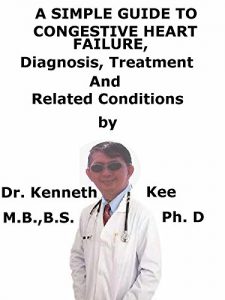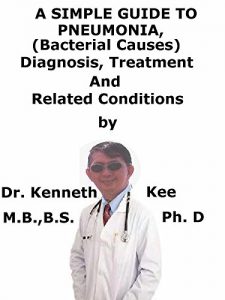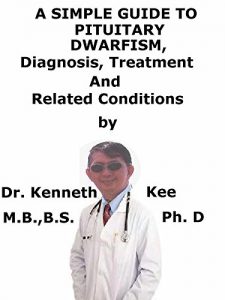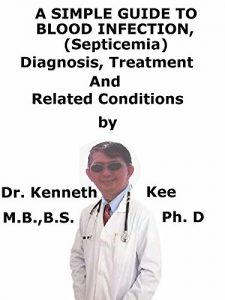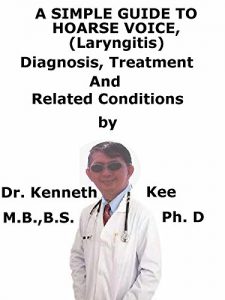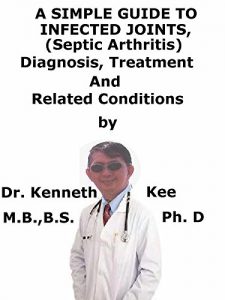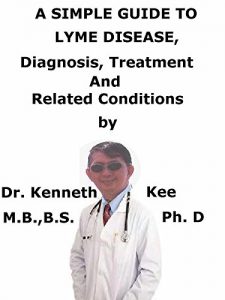Chapter 1
Congestive Heart Failure
What is Congestive Heart failure?
Congestive Heart failure is a medical disorder that happens when the heart can not push enough blood to the rest of the body.
This disorder may involve either the right side or the left side of the heart.
Frequently both sides of the heart are affected.
Congestive Heart failure is frequently a chronic disorder but it may start suddenly.
It can be produced by many different heart disorders.
Heart failure happens when:
a. The heart muscle cannot push or eject the blood out of the heart very well.
This is termed systolic heart failure.
b. The heart muscles are stiff and can not fill up with blood readily.
This is termed diastolic heart failure.
c. When the heart's pumping becomes less effective, blood may accumulate in other parts of the body.
Fluid may collect in the lungs, liver, gastrointestinal tract, and the arms and legs.
This is termed congestive heart failure.
What is the Cause of Congestive Heart failure?
When the heart is not able to eject enough oxygen-rich blood out to the other parts of the body, the blood may collect in the lungs, liver, gastrointestinal tract, and the arms and legs.
1. Coronary artery disease (CAD) is the narrowing of the small blood vessels that supply blood and oxygen to the heart weakening the heart and its pumping action.
2. Cardiomyopathy - Heart failure can also happen when an infection weakens the heart muscle and the heart muscle becomes bigger to compensate.
3. Congenital heart disease -defects in the heart of the newborn decrease the pumping effect of the heart
4. High blood pressure that is not properly controlled, resulting in problems with stiffness or ultimately resulting in muscle weakening.
5. Heart valve disease - abnormal valves that are narrowed or leaks affects the blood flow through the heart
6. Infection that weakens the heart muscle and its pumping action
7. Some types of abnormal heart rhythms (arrhythmias) causes the effectiveness of blood flow through the heart
8. Emphysema – the chronic lung disease involves the heart lung circulation
9. Overactive thyroid – the fast heart beats involve the heart pumping action
10. Severe anemia -insufficient blood involves the blood flow in the heart
11. Under active thyroid - slow heart beats also involves the heart
12. Other diseases that can produce or contribute to heart failure:
a. Amyloidosis
b. Sarcoidosis
c. Too much iron in the body
What are the symptoms of Congestive Heart failure?
Symptoms of heart failure often start slowly.
At first they may only happen when the person is very active.
Over time, the patient may observe breathing problems and other symptoms even when he or she is resting.
Symptoms may also happen suddenly after the heart is injured from a heart attack or other disorder.
1. Breathing problems happen even while resting.
2. Coughing that is worse at night
3. Weakness, fatigue, faintness
4. Loss of appetite
5. Need to urinate at night
6. Pulse that is irregular or fast and palpitations (feeling of fast heart beats)
7. Shortness of breath when active or lying down
8. Enlarged (Swollen) liver or abdomen
9. Feet and ankles swelling
10. Waking up from sleep from shortness of breath
11. Weight gain
Heart failure symptoms can also start suddenly for example after a heart attack or other heart disorder.
Signs
1. Difficulty in breathing or fast breathing
2. Fast or irregular heartbeat and abnormal heart sounds
3. Leg swelling (edema)
4. Neck veins that swell out (distended)
5. Sounds (crepitations) from fluid buildup in lower areas of the lungs
6. Swelling of the liver or abdomen
TABLE OF CONTENT
Introduction
Chapter 1 Congestive Heart failure
Chapter 2 Causes
Chapter 3 Symptoms
Chapter 4 Diagnosis
Chapter 5 Treatment
Chapter 6 Prognosis
Chapter 7 Coronary Heart D
Congestive Heart Failure
What is Congestive Heart failure?
Congestive Heart failure is a medical disorder that happens when the heart can not push enough blood to the rest of the body.
This disorder may involve either the right side or the left side of the heart.
Frequently both sides of the heart are affected.
Congestive Heart failure is frequently a chronic disorder but it may start suddenly.
It can be produced by many different heart disorders.
Heart failure happens when:
a. The heart muscle cannot push or eject the blood out of the heart very well.
This is termed systolic heart failure.
b. The heart muscles are stiff and can not fill up with blood readily.
This is termed diastolic heart failure.
c. When the heart's pumping becomes less effective, blood may accumulate in other parts of the body.
Fluid may collect in the lungs, liver, gastrointestinal tract, and the arms and legs.
This is termed congestive heart failure.
What is the Cause of Congestive Heart failure?
When the heart is not able to eject enough oxygen-rich blood out to the other parts of the body, the blood may collect in the lungs, liver, gastrointestinal tract, and the arms and legs.
1. Coronary artery disease (CAD) is the narrowing of the small blood vessels that supply blood and oxygen to the heart weakening the heart and its pumping action.
2. Cardiomyopathy - Heart failure can also happen when an infection weakens the heart muscle and the heart muscle becomes bigger to compensate.
3. Congenital heart disease -defects in the heart of the newborn decrease the pumping effect of the heart
4. High blood pressure that is not properly controlled, resulting in problems with stiffness or ultimately resulting in muscle weakening.
5. Heart valve disease - abnormal valves that are narrowed or leaks affects the blood flow through the heart
6. Infection that weakens the heart muscle and its pumping action
7. Some types of abnormal heart rhythms (arrhythmias) causes the effectiveness of blood flow through the heart
8. Emphysema – the chronic lung disease involves the heart lung circulation
9. Overactive thyroid – the fast heart beats involve the heart pumping action
10. Severe anemia -insufficient blood involves the blood flow in the heart
11. Under active thyroid - slow heart beats also involves the heart
12. Other diseases that can produce or contribute to heart failure:
a. Amyloidosis
b. Sarcoidosis
c. Too much iron in the body
What are the symptoms of Congestive Heart failure?
Symptoms of heart failure often start slowly.
At first they may only happen when the person is very active.
Over time, the patient may observe breathing problems and other symptoms even when he or she is resting.
Symptoms may also happen suddenly after the heart is injured from a heart attack or other disorder.
1. Breathing problems happen even while resting.
2. Coughing that is worse at night
3. Weakness, fatigue, faintness
4. Loss of appetite
5. Need to urinate at night
6. Pulse that is irregular or fast and palpitations (feeling of fast heart beats)
7. Shortness of breath when active or lying down
8. Enlarged (Swollen) liver or abdomen
9. Feet and ankles swelling
10. Waking up from sleep from shortness of breath
11. Weight gain
Heart failure symptoms can also start suddenly for example after a heart attack or other heart disorder.
Signs
1. Difficulty in breathing or fast breathing
2. Fast or irregular heartbeat and abnormal heart sounds
3. Leg swelling (edema)
4. Neck veins that swell out (distended)
5. Sounds (crepitations) from fluid buildup in lower areas of the lungs
6. Swelling of the liver or abdomen
TABLE OF CONTENT
Introduction
Chapter 1 Congestive Heart failure
Chapter 2 Causes
Chapter 3 Symptoms
Chapter 4 Diagnosis
Chapter 5 Treatment
Chapter 6 Prognosis
Chapter 7 Coronary Heart D
